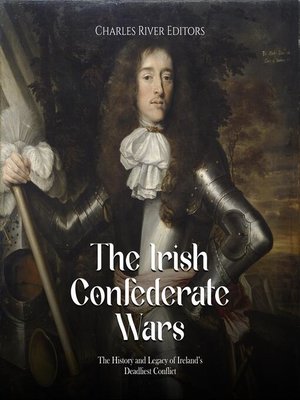The Irish Confederate Wars
audiobook (Unabridged) ∣ The History and Legacy of Ireland's Deadliest Conflict
By Charles River Editors

Sign up to save your library
With an OverDrive account, you can save your favorite libraries for at-a-glance information about availability. Find out more about OverDrive accounts.
Find this title in Libby, the library reading app by OverDrive.



Search for a digital library with this title
Title found at these libraries:
| Library Name | Distance |
|---|---|
| Loading... |
During the 12th century, the people of Ireland came under the sway of the English, who had extended into their domain. With every subsequent century, English dominion in the land gradually expanded, leading to the exceedingly harsh treatment of native Irish populations at the hands of English settlers. The Tudor period was especially tumultuous, with Elizabeth I waging a notoriously expensive conquest against the Irish in the waning years of her reign.
By the time of the Bishops' War, the majority of native Irish people were Catholic. Discrimination against native Irelanders had, at that point, come to encompass both ethnic and religious elements. English colonists brought Protestantism with them, leading to intense theological friction between the natives - who followed the teachings of the Vatican - and the settlers - who followed the teachings of Luther, Calvin, Knox, and the like. Plantation of the natives took place where property owned by Irish Catholics was seized by the newcomers with the support of the English controlled Irish Privy Council.
Tensions began to come to a head during the Second Bishops' War, when the Irish Parliament was called upon to garner funds for Charles I's fight against Scottish insurrectionists. In March of 1640, the speaker of the Commons, Maurice Eustace, delivered an overtly pro-English speech in the Irish Parliament. He praised Wentworth for his rule over the island and insisted to his fellow Irishmen that they put the past of Irish-English animosity behind them. Bitter irony would strike the island following Eustace's optimism. Ethnic and religious oppression, three failed harvests, and the Covenanters' military success had sufficiently stirred an anti-English spirit amongst the Irish
The stage was now set for a new conflict that would make the Bishops' Wars pale in comparison. All it took was for someone to light the fuse.







